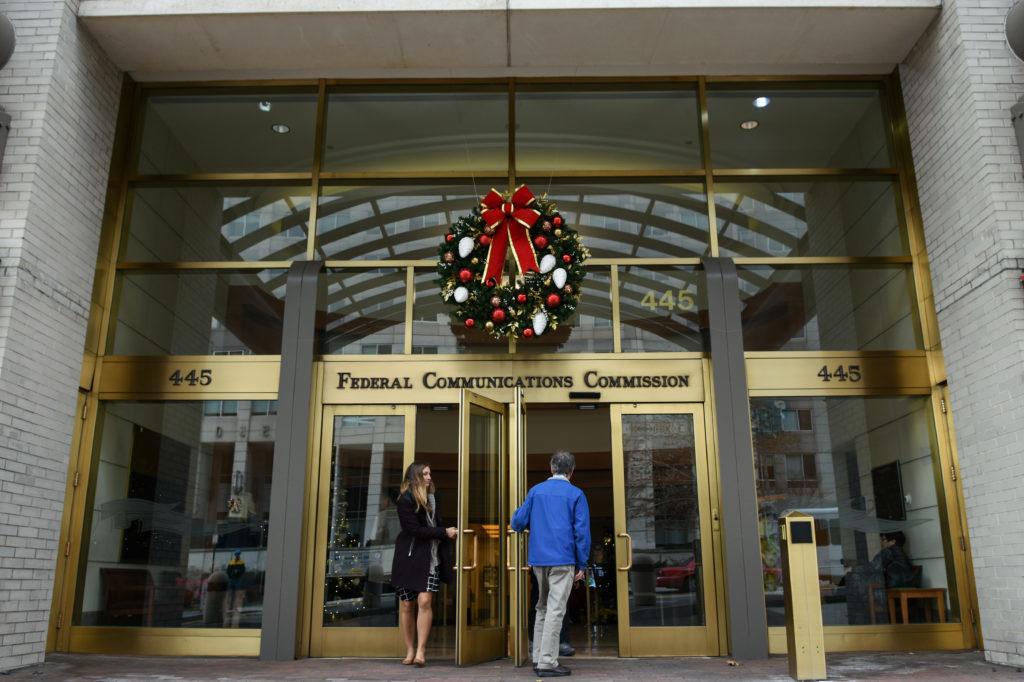The University came out against the Federal Communication Commission’s recent decision to repeal federal regulations governing internet delivery, saying the proposal would negatively impact equal access to information online.
The FCC announced a repeal of federal policies meant to ensure equal access to the internet – known as net neutrality – last month. Professors said the repeal could allow internet service providers to charge for access to some sites, which could constrict faculty and student use of the internet.
Net neutrality is the principle that internet service providers treat all internet websites and data equally. Protections to safeguard net neutrality were put into place by the Obama administration in 2015.
Last month, the Trump administration’s new FCC chairman, Ajit Pai, announced plans to overturn the regulations to prevent individual states from creating their own rules and decrease government regulation of business, a decision that sparked a nationwide debate about the value of a free internet.
University spokeswoman Maralee Csellar said GW supports net neutrality and that the planned rollback “is counter to the concept of equal access to information, content and collaborators.”
“Free, open, and equal access to services on the internet promotes knowledge attainment, free thinking, collaboration, innovation, and entrepreneurship,” she said in an email.
Csellar said the University is monitoring the rollback attempts and the FCC’s planned Dec. 14 vote on the issue.
“Should any changes occur, we will work to mitigate any negative impacts on students, faculty and staff,” she said. “We continue to receive updates from various higher education professional associations.”
Earlier this year, the American Council of Education and other higher education groups asked the FCC to uphold net neutrality because accessibility to the internet is important to the work that students, faculty, staff and researchers conduct.
Nima Zahadat, a professor of data science, information systems security and digital forensics, said the rollback of net neutrality will allow internet service providers to offer different internet speeds to companies and individuals – and to charge more money.
He said the move will impact students because websites they use will be forced to pay more for access to their internet, which could result in higher costs for the University when providing internet access to students.
“My students utilize a lot of services like Amazon Web Services, so what’s going to happen is Amazon is going to be forced to raise their prices, which means it’s going to cost the University more money,” he said. “How that will play out for our students is it will probably be a hike in tuition, or various fee to pay for it.”
Zahadat added that these changes will likely not impact distance learning if students are mainly using Blackboard and downloading lectures. But if students have to stream videos from websites like Blackboard, he said they may have to pay more.
Research will also be affected because many professors rely on web services that providers could potentially charge more to use, he said.
“Our research depends on having access to high-speed connection, and it will definitely impact us and all the partners that we’re working with that require high-speed access,” Zahadat said. “We will all be impacted because we’re going to start paying a lot more money for having this access.”
David Alan Grier, an associate professor of international science and technology policy and international affairs, said video streaming services like Netflix – which many film classes rely on – will be “greatly impacted,” if internet service providers raise prices.
“ISPs will say ‘if you want to have the same access we give our stuff, you’re going to have to pay for it,’ so it’s going to be differential pricing services in a way that we haven’t seen before,” he said.
Unless people see marked changes to the internet or major price hikes, Grier said the planned repeal will not have a huge impact, despite the wave of backlash following the FCC’s announcement.
“My feeling is that there is going to be a big flurry over it, and unless we see something like rising cable bills that we have seen or radical straightening of very popular sites, there’s going to be grumbling or complaining but we’re going to buy it,” he said.
Tad Miller, a junior majoring in computer science and president of GW Cyber, a student organization that focuses on software and hardware security, said repealing net neutrality will allow internet service providers to charge different rates to visit different websites like Facebook, Netflix or Google.
He said he is particularly concerned about how the proposal will affect his ability to do research as a student.
“On a personal level, for doing homework or whatnot, if you’re on your house network and you want to go on Google Scholar or something like that, and you don’t have the package, that could have a major impact because you can’t look at that content, you’re not allowed to load it,” he said.




